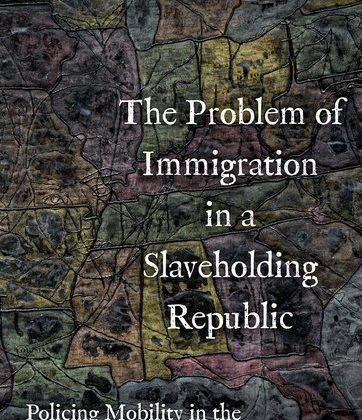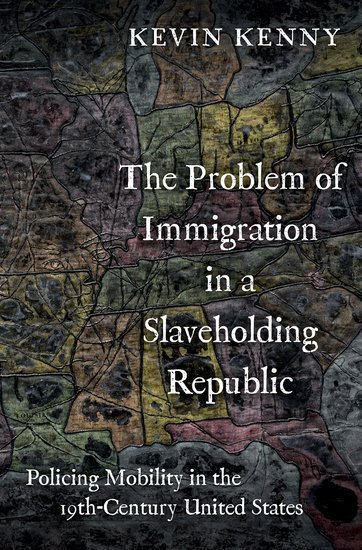

Kevin Kenny is Professor of History and Glucksman Professor in Irish Studies at New York University. This interview is based on his new book, The Problem of Immigration in a Slaveholding Republic: Policing Mobility in the Nineteenth-Century United States (Oxford University Press, 2023).
JF: What led you to write The Problem of Immigration in a Slaveholding Republic?
KK: I wrote The Problem of Immigration in a Slaveholding Republic to answer a question that had not occurred to me before I asked it. As a social historian focused on immigrants as agents of their own history, I was not initially interested in the question of which level of government controlled admissions or expulsions. Because immigration is a federal matter today, I vaguely assumed that it must always have been so. If that assumption were true, the logical place to look in the United States would be the Constitution. Yet, strangely for a country that attracted more immigrants than any other, the Constitution says nothing about immigration (other than setting a policy for naturalizing foreigners after they arrive). Who, then, had authority over immigration in the nineteenth century and on what grounds?
JF: In 2 sentences, what is the argument of The Problem of Immigration in a Slaveholding Republic?
KK: In the century between the American Revolution and Reconstruction, the federal government played virtually no role in regulating immigration; the states controlled mobility within and across their own borders. More than any other force in American history, I argue, the existence, abolition, and legacies of slavery shaped immigration policy as it moved from the local to the national level over the course of the nineteenth century, within the context of westward imperial expansion.
JF: Why do we need to read The Problem of Immigration in a Slaveholding Republic?
KK: Connecting European and Asian immigration history with African American and Native American history in the nineteenth century reveals the foundations of present-day border control, incarceration, deportation, and the ongoing tensions between state and federal sovereignty in immigration policy.
JF: Why and when did you become an American historian?
KK: I became interested in American history as an undergraduate at the University of Edinburgh in the 1980s, more or less by chance, when I took a second-year survey course on a subject I knew almost nothing about. After spending my junior year at the University of Pennsylvania, where I took a wide range of courses in American history, I finished my degree at Edinburgh and then enrolled in the PhD program at Columbia University, where I was trained in US history with a specialty in nineteenth-century immigration and labor.
JF: What is your next project?
KK: Having worked for the past ten years on legal, constitutional, political history in researching and writing The Problem of Immigration in a Slaveholding Republic, I am now returning to some of my initial interests in social history. With a colleague, Dr. Maddalena Marinari, I am editing a collection of historical essays called Rituals of Migration: Irish and Italians on the Move (under contract with NYU Press), in which the authors examine what migrants do and think on the eve of departure, when they are in transit, and when return to the lands they left or contemplate doing so.
JF: Thanks, Kevin!